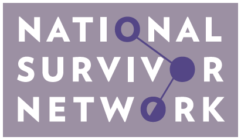
ALL PEOPLE DESERVE TO FEEL SAFE ONLINE
Everybody deserves to feel safe online. Feeling safe online means different things to different people, but in general online safety looks like:
- People respect your choices. If you ask them to leave you alone they do. If you say you aren’t interested, they stop asking. If you you ask them not to share something with others, they don’t.
- You respect other peoples’ choices, too. If they ask you to leave them alone, say they aren’t interested, or ask you not to share something with others — you respect it.
- You don’t try to trick people into doing, saying, or believing things they wouldn’t otherwise be okay with. This might include things like not sending fake job offers, not saying you care about someone just to get what you want, and not creating fake accounts pretending to be someone else.
Sometimes, things happen online that don’t feel safe. You might get a text or message or end up on a webpage where something feels off. It’s important to have someone you can talk to to help you make wise choices. That might be a parent or caregiver, trusted adult, teacher or counselor, neighbor, or good friend. You can also educate yourself about online safety so that you can be a good friend to others. We’ll share some tips below for how to navigate online safety, and for how to be a good friend.
One final note: Sometimes it can feel really exciting when you’re a young person to have an older teenager or adult want to be your friend. It can make you feel special, and it’s cool to have someone older think of you as a “peer.” And we don’t want you feeling scared or unsafe online — we want you feeling empowered and like you know how to take care of yourself. One way you can take care of yourself is by being cautious about making friends with adults online.
It’s one thing to add your aunt or best friend’s parents who are besties with your parents too. And youth do need mentors, but those are best met in person through school or community connections. It can be riskier to connect with random adults online, and it’s not typical or normal for adults to want to be friends with children like they are with other adults. Talk to your parents or other trusted people in your life about ways to make safer decisions when making friends online.

Get help about a relationship that doesn’t always feel respectful.
Talk to someone about being pressured or coerced into sexual activities or images.
Get help if someone is pressuring you to do sexual activities or send images in exchange for safety, food, money, or housing.
*Note that in most states, adults who learn that someone under the age of 18 is being abused, they are required to report it to either a child welfare office or to law enforcement. If you are worried about that, when you call you can ask them to explain what they are required to report before sharing more about your situation.
